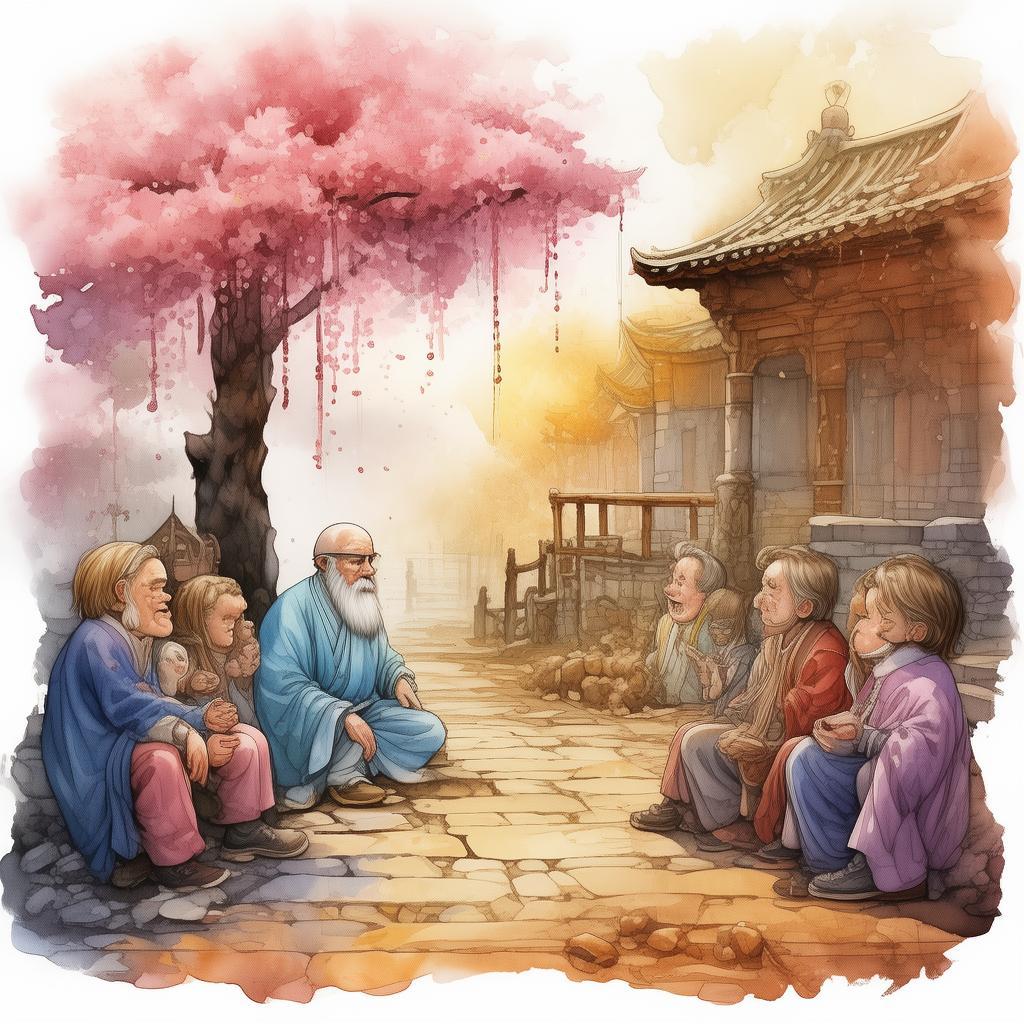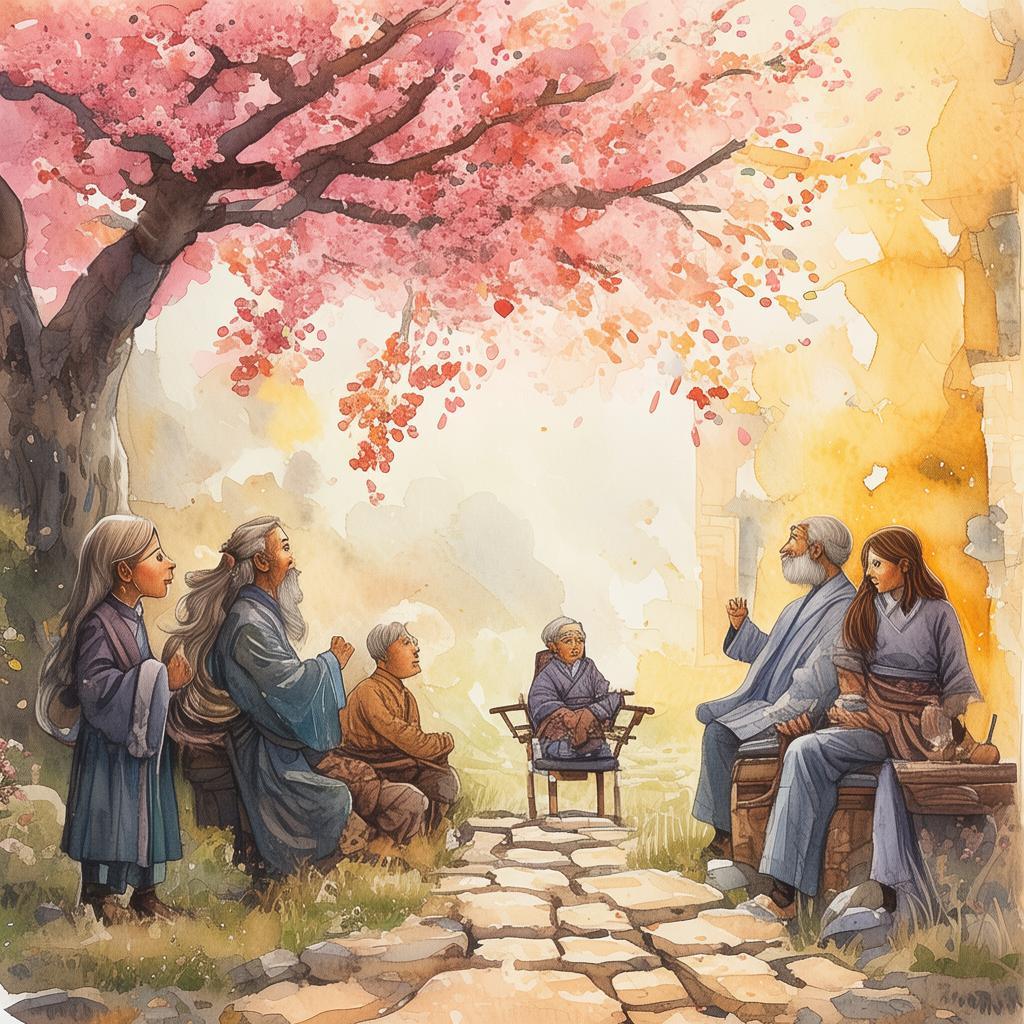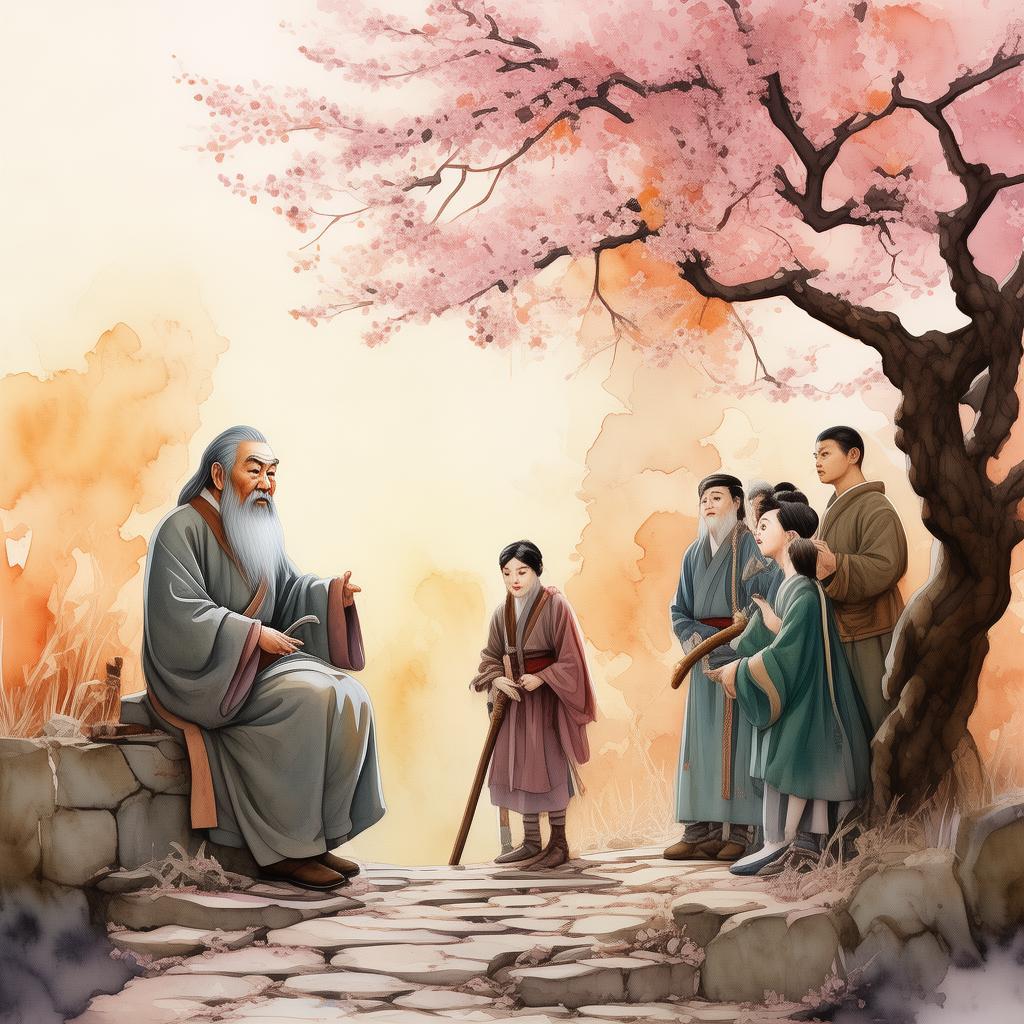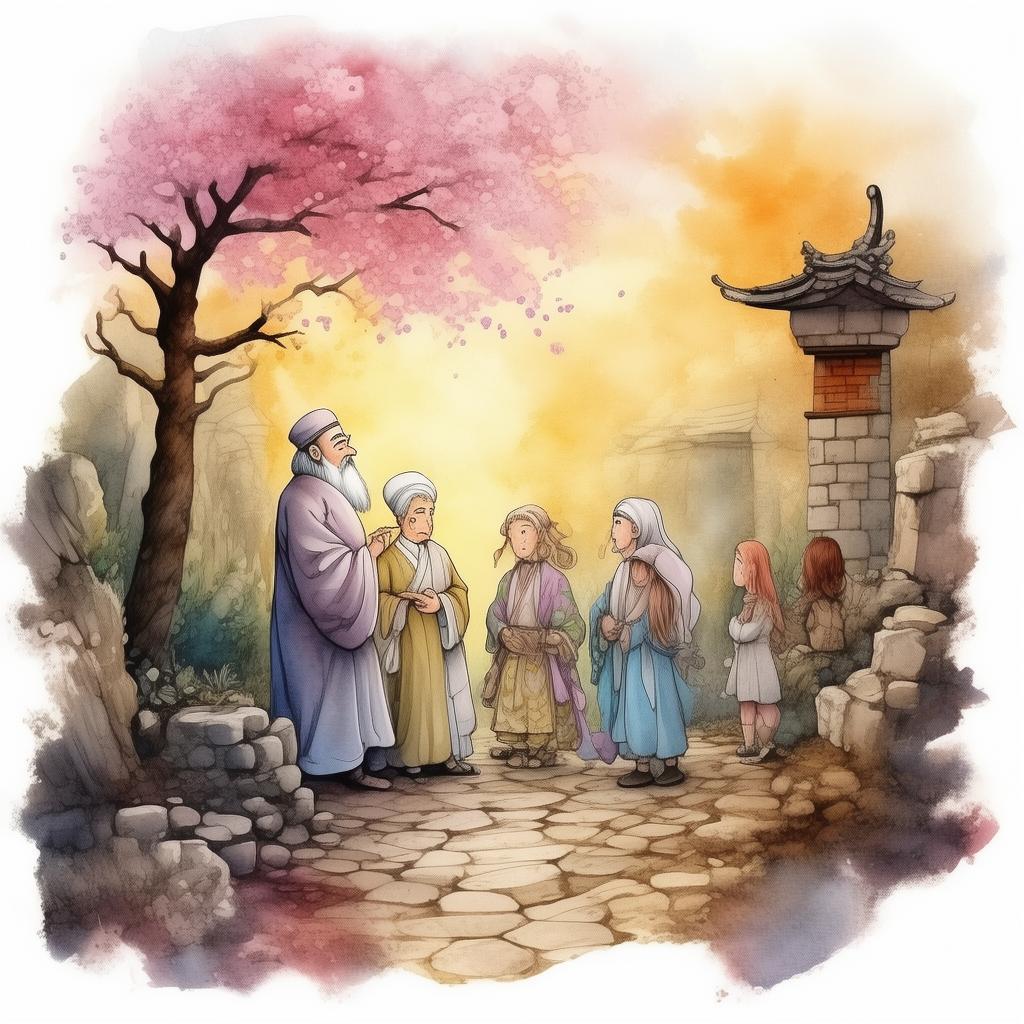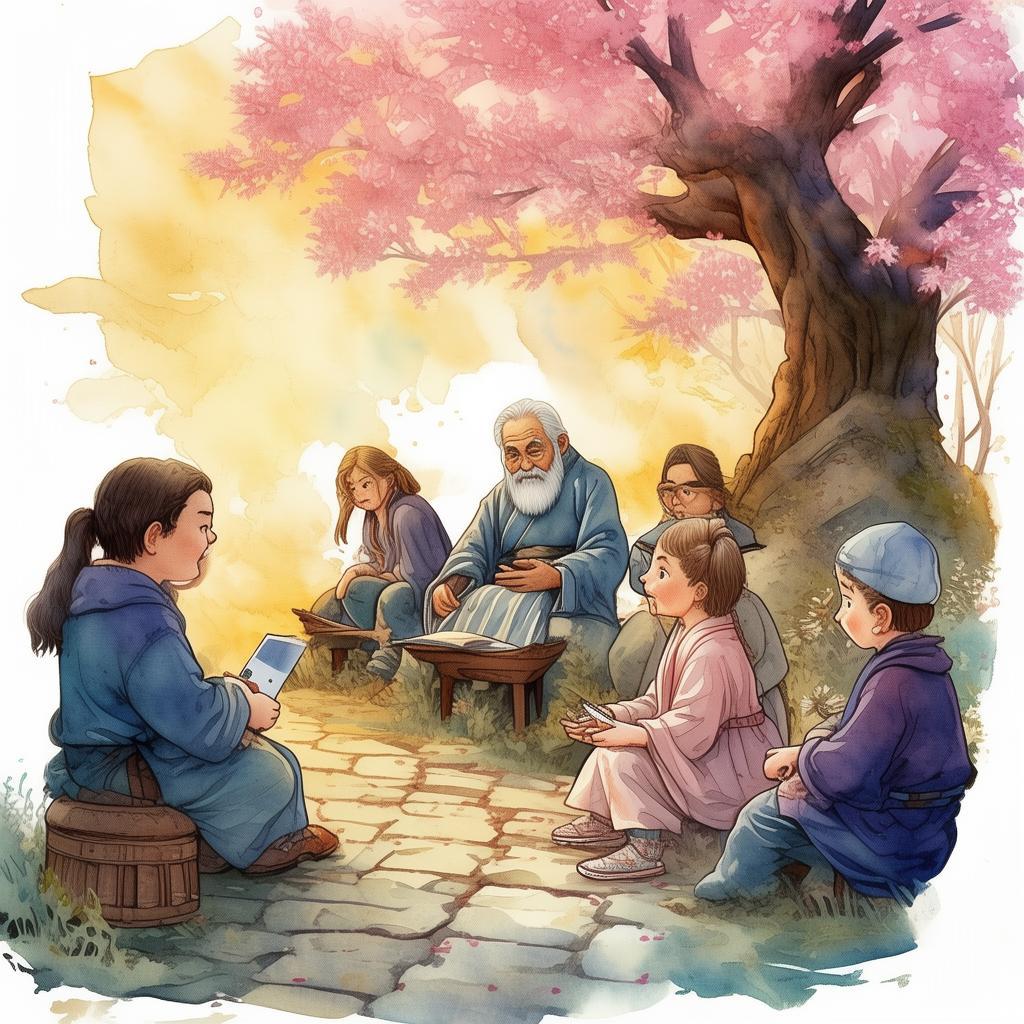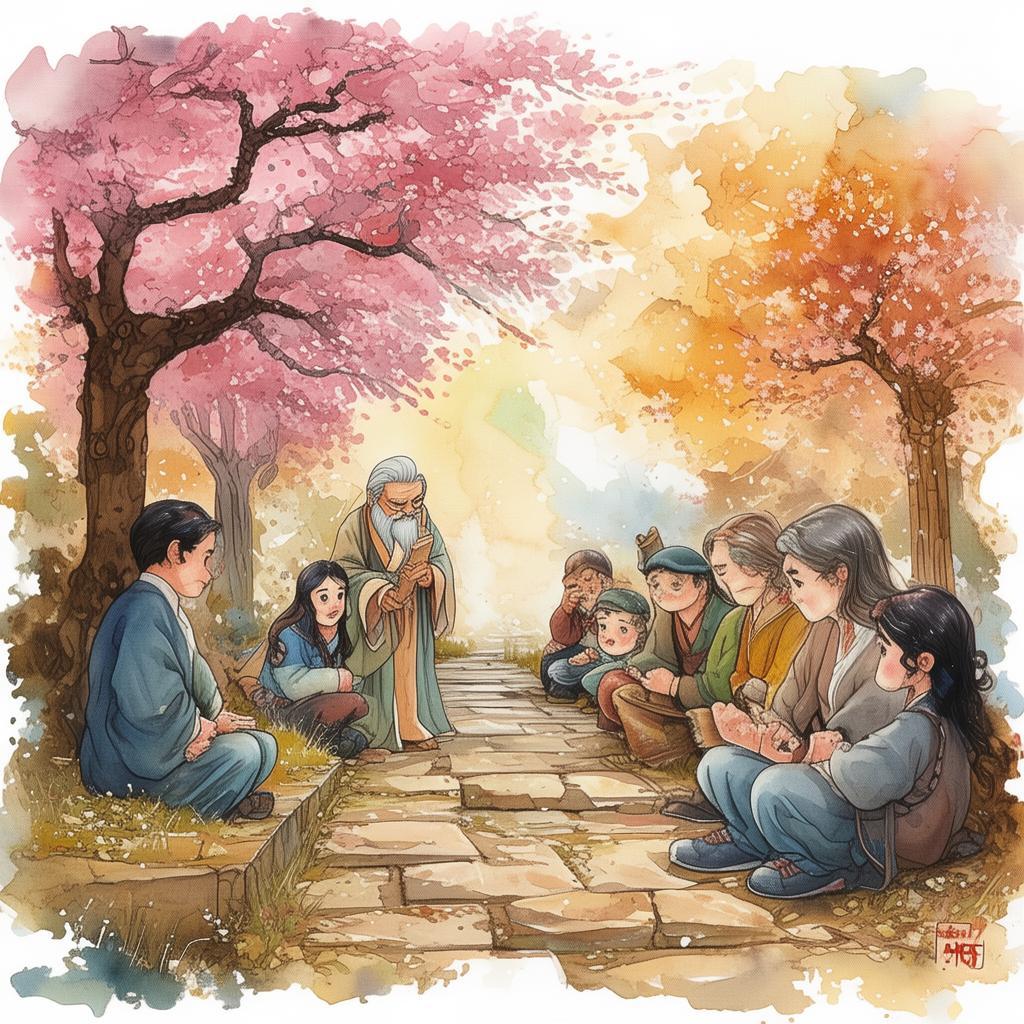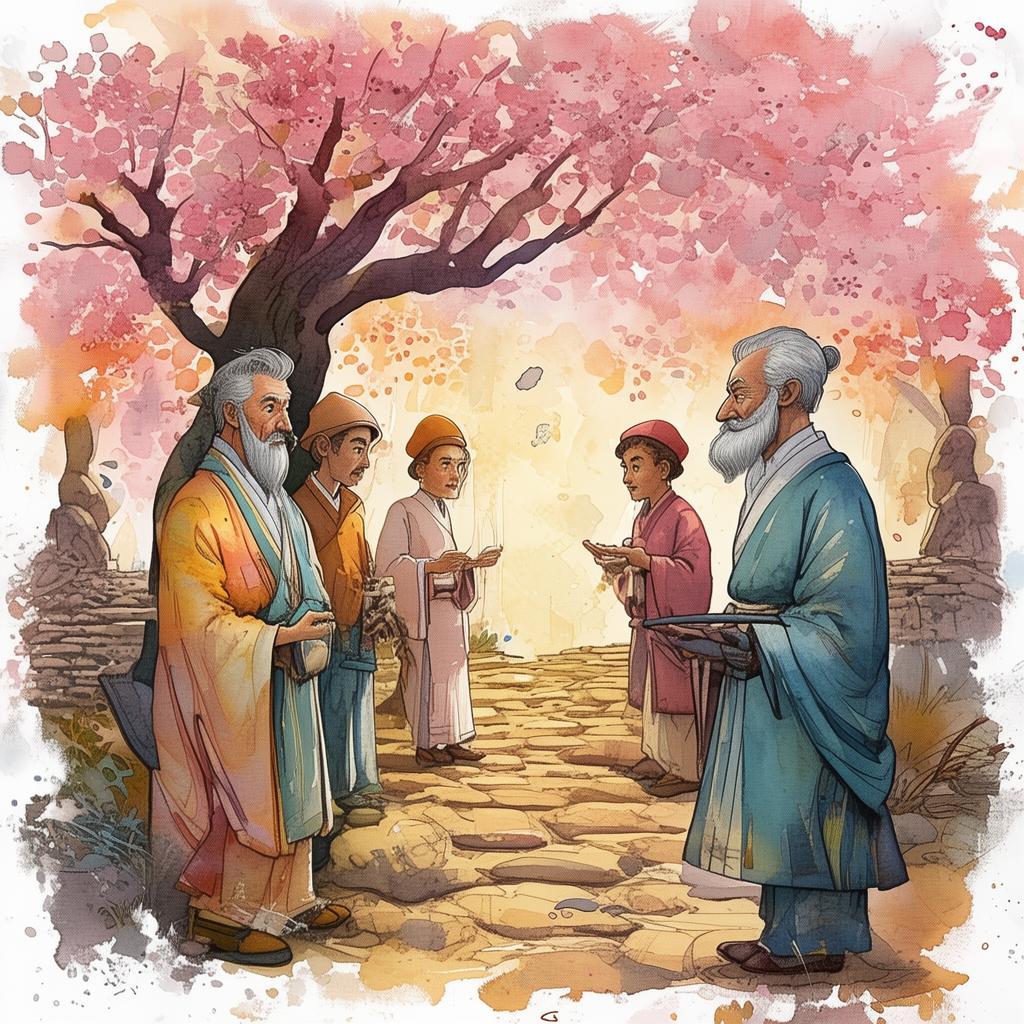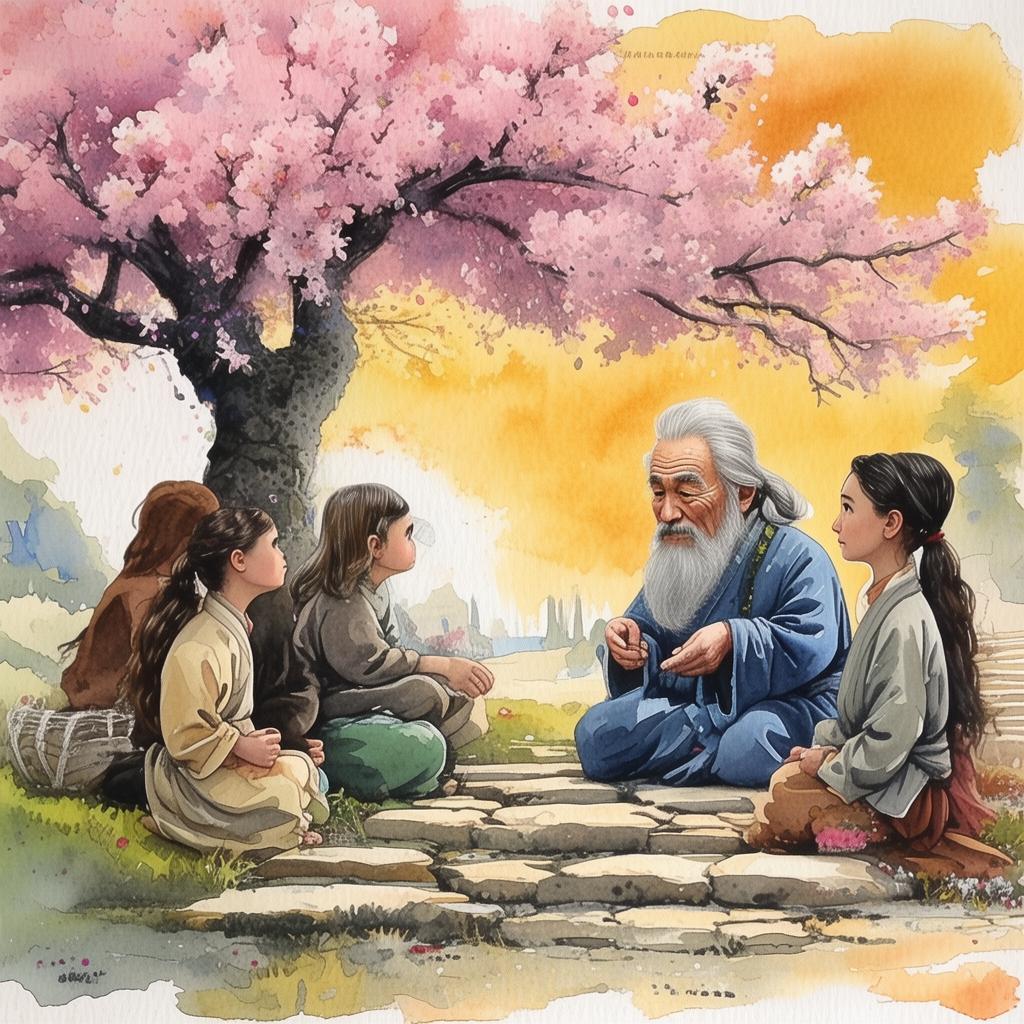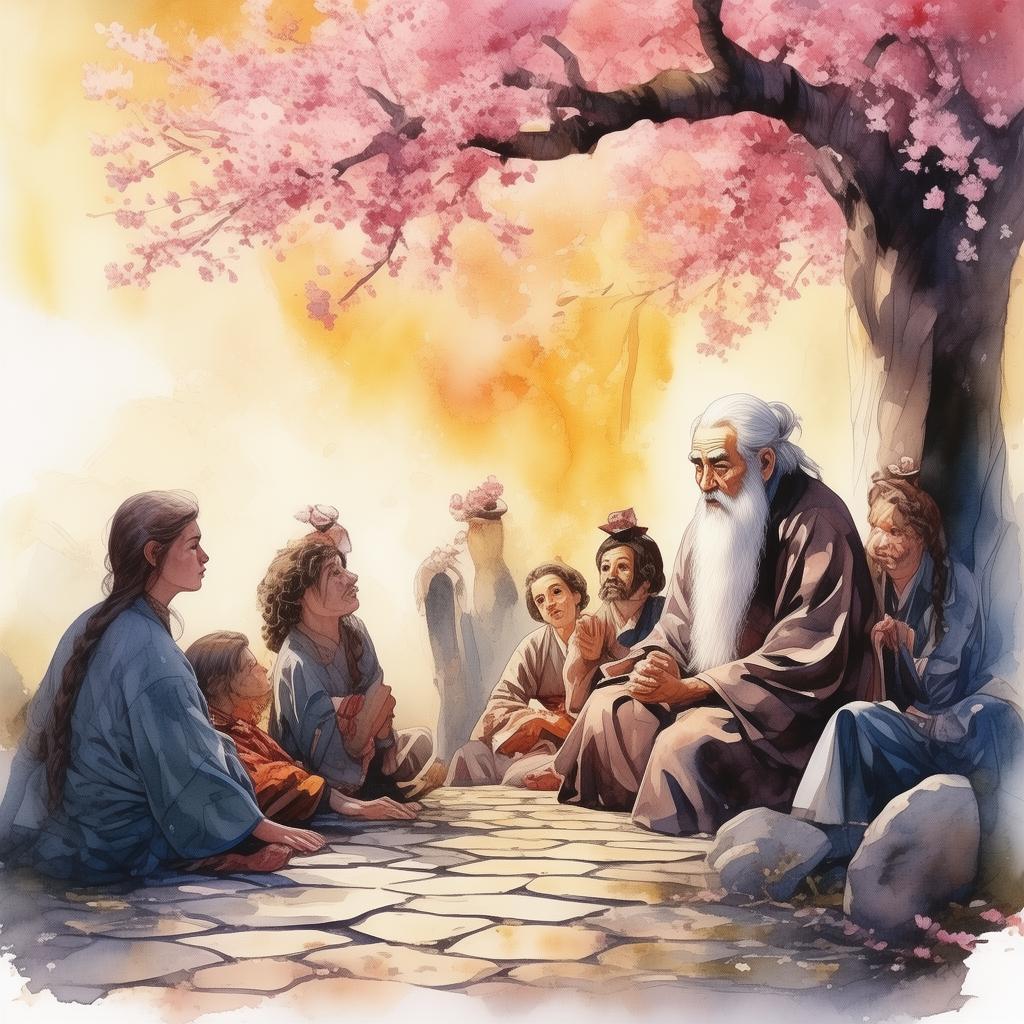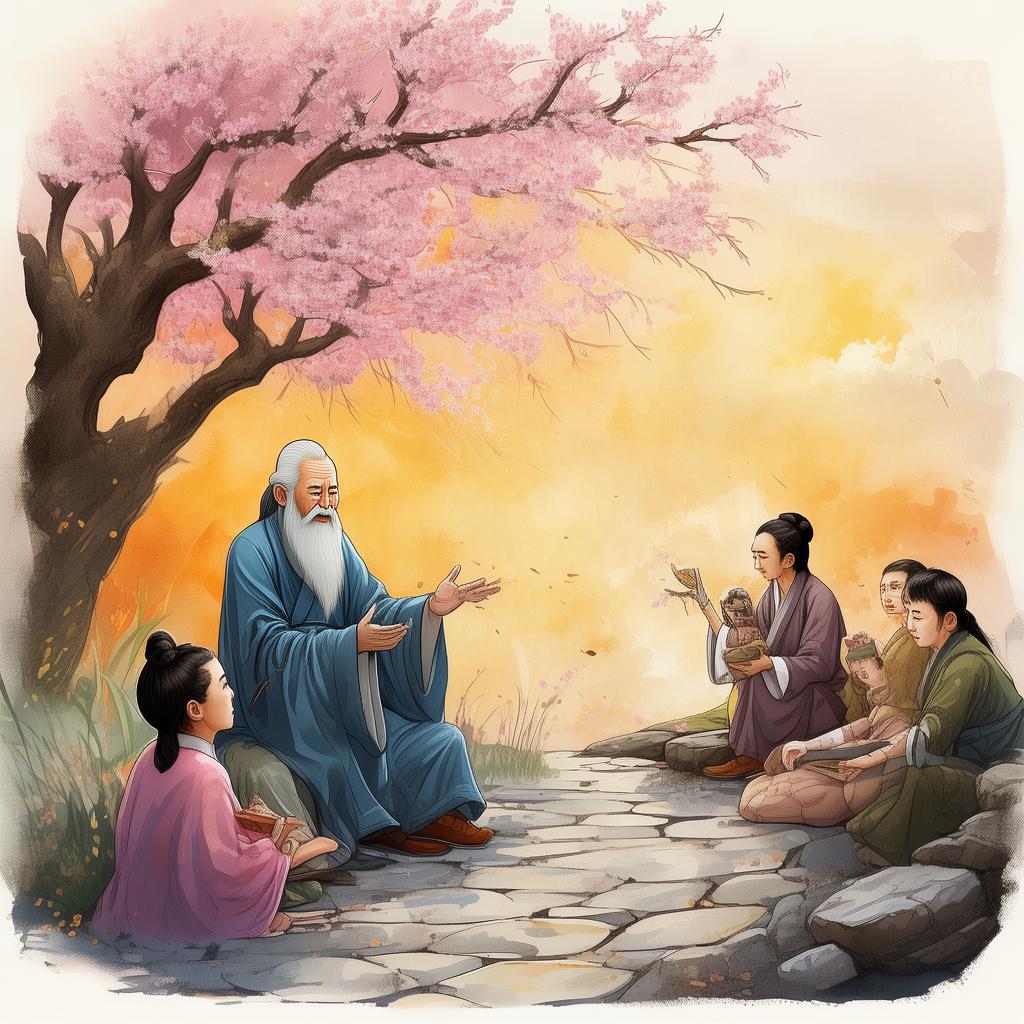The Philosophical Paradox of the Scholarly Student
In the ancient city of Luoyang, there lived a young student named Ming who was known far and wide for his insatiable thirst for knowledge. Ming had an exceptional memory, an inquisitive mind, and a gentle heart. However, as he grew in wisdom, he found himself increasingly perplexed by the philosophical paradoxes that surrounded him.
One day, as he strolled through the serene gardens of the university, he came upon an elderly philosopher named Zhen. Zhen was revered for his profound understanding of the universe, and Ming was eager to learn from him.
"Great Zhen," Ming said, bowing deeply, "I have heard of your wisdom. I seek to understand the nature of truth and the essence of knowledge. But in my quest, I am often confronted by paradoxes that leave me confused."
Zhen smiled, his eyes twinkling with a knowing light. "Ah, young Ming, you have come to the right place. Paradoxes are the very essence of philosophy. They challenge our perceptions and force us to think critically."
The old philosopher then shared with Ming a tale of a great teacher, Master Hu, who had once posed a riddle to his students: "I have three sons. One is a baker, another is a weaver, and the third is a fisherman. The baker has a black dog, the weaver has a white dog, and the fisherman has a brown dog. Tell me, which son has the black dog?"
The students puzzled over the riddle, but none could find a satisfying answer. It was only when one student asked Master Hu about the color of his own dog that the paradox was revealed. Master Hu's dog was white, making it impossible for any of his sons to have a black dog, as the students had initially thought.
Ming listened intently, his mind racing with questions. "So, you say that paradoxes are the key to understanding truth?"
"Yes," Zhen replied. "Paradoxes are not just puzzles; they are windows into the nature of reality. They force us to look beyond the surface and examine our assumptions."
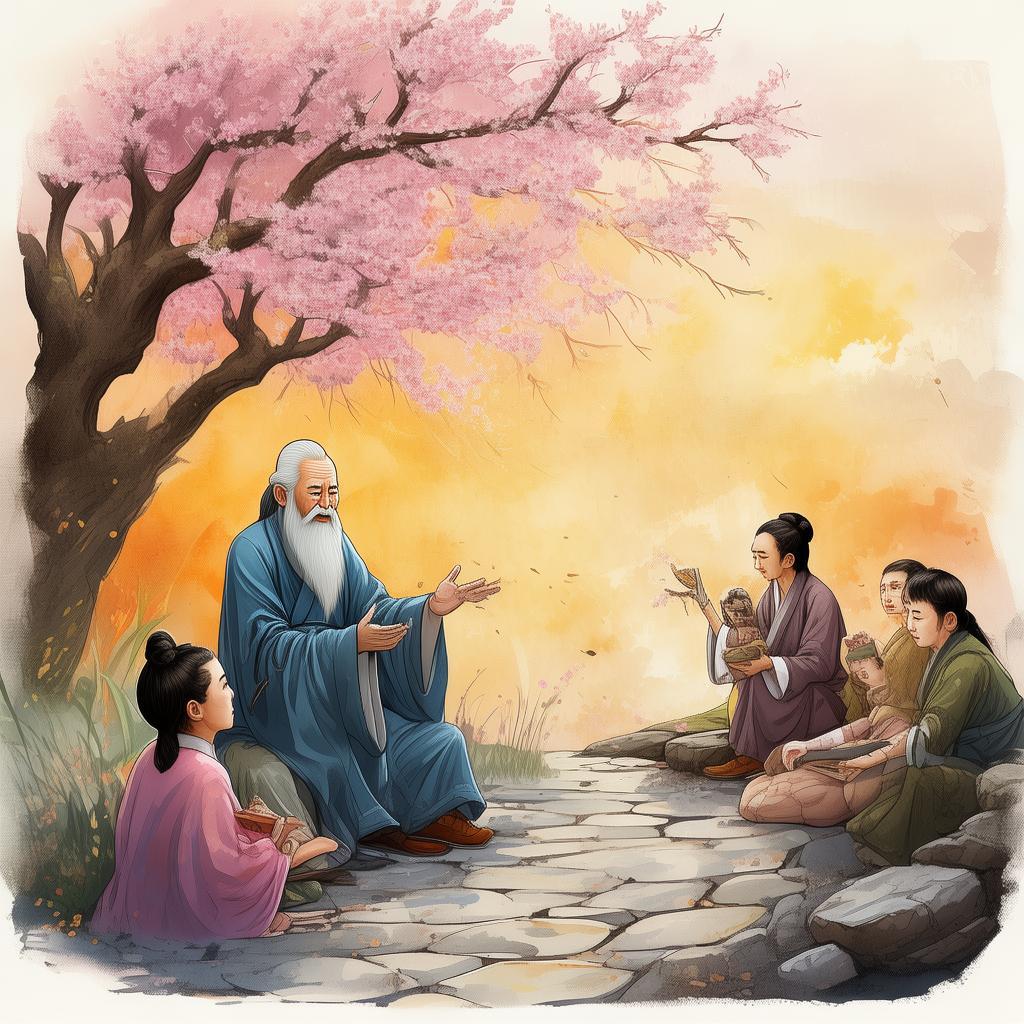
Determined to test his own understanding, Ming set out to create his own paradox. He found a young farmer who was equally eager to learn. Ming told the farmer about the paradox of the baker, weaver, and fisherman, and challenged him to find a solution.
The farmer pondered the riddle for days, his mind racing with possibilities. Finally, he approached Ming with an answer. "Ming, the solution is that the black dog is none of the sons' dogs. It is Master Hu's own dog."
Ming was astounded. "You have found a way to transcend the paradox. But tell me, how did you do it?"
The farmer smiled. "By recognizing that the paradox was not a question about the sons, but about Master Hu himself. Once I shifted my perspective, the solution became clear."
Intrigued, Ming asked Zhen to teach him more about paradoxes. Zhen agreed, and the two of them spent hours discussing the nature of reality, the role of assumptions, and the importance of perspective.
As the days passed, Ming's understanding of paradoxes deepened. He began to see them not as obstacles to knowledge, but as opportunities for growth. He realized that true wisdom came not from knowing all the answers, but from asking the right questions.
One day, Ming found himself standing before a great tree, its roots stretching deep into the earth. He felt a profound connection to the tree, as if it were a living embodiment of the paradoxes he had studied.
"I have learned so much from you, Zhen," Ming said, bowing deeply once more. "But I still feel that there is more to understand. Can you guide me further?"
Zhen nodded, his eyes filled with compassion. "Ming, the pursuit of wisdom is a journey without end. Each paradox you encounter is a step forward. Continue to ask questions, to challenge your assumptions, and to seek the truth."
Ming took Zhen's words to heart and continued his quest for knowledge. He traveled far and wide, encountering countless paradoxes and learning from them all. With each new discovery, he grew wiser and more enlightened.
Years passed, and Ming became a renowned philosopher in his own right. He shared his wisdom with others, helping them to understand the paradoxes that surrounded them and guiding them on their own paths to enlightenment.
The Philosophical Paradox of the Scholarly Student is a tale of a young man's journey through the world of paradoxes, revealing the depth and complexity of human understanding. It is a story that teaches us that the pursuit of wisdom is a lifelong journey, one that requires courage, curiosity, and an open mind.
✨ Original Statement ✨
All articles published on this website (including but not limited to text, images, videos, and other content) are original or authorized for reposting and are protected by relevant laws. Without the explicit written permission of this website, no individual or organization may copy, modify, repost, or use the content for commercial purposes.
If you need to quote or cooperate, please contact this site for authorization. We reserve the right to pursue legal responsibility for any unauthorized use.
Hereby declared.
